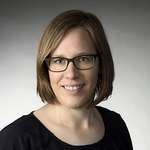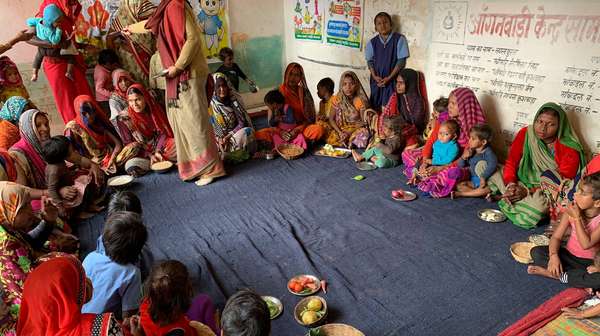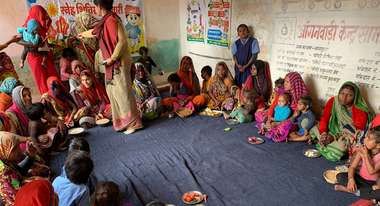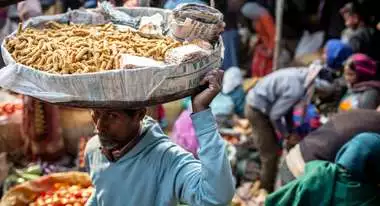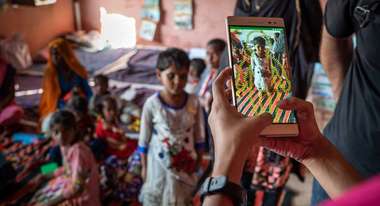All about the WHH pilot program.
Sharing experiences and learning from each other
A visit to Nutrition Smart CommUNITY in Khajuraho, India. Together with partner organizations, Welthungerhilfe (WHH) teams from Africa, Asia and Germany exchanged ideas about the program to inform how we are going to expand the strategic approach to eliminating hunger globally.
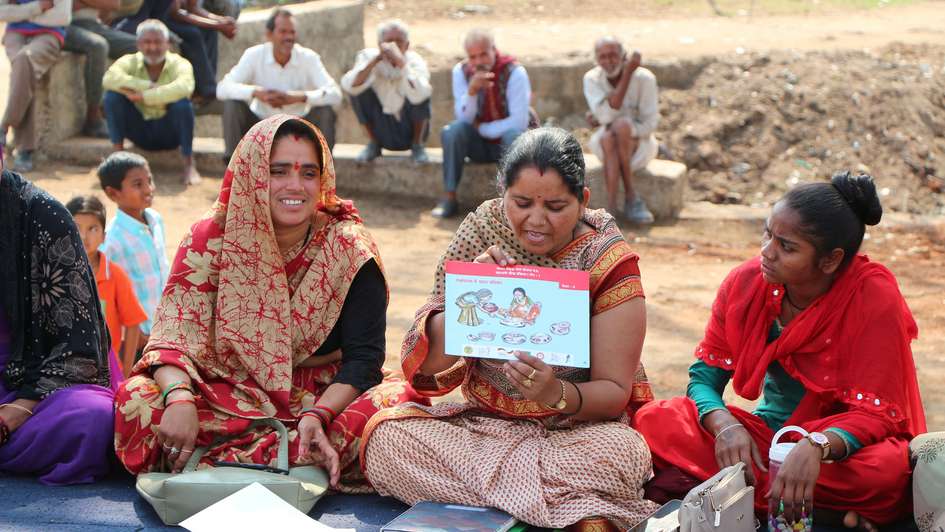
We have a very good reason to come together: WHH is extending the strategic approach of "Nutrition Smart CommUNITY" developed in India to the African countries of Sierra Leone, Malawi, Ethiopia and Burundi, after Nepal, Bangladesh and Tajikistan.
In essence, the aim is to help village communities particularly affected by poverty to counteract the multifaceted causes of hunger with equally multifaceted solutions. In the so-called "Nutrition Smart CommUNITY," many individuals, local organizations and authorities network together to advance the development of agriculture, hygiene and nutrition in the village.
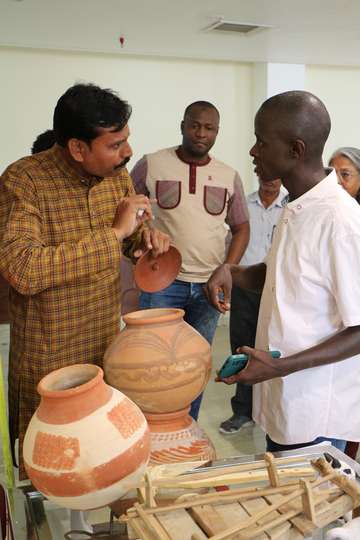
In-person exchange about Nutrition Smart CommUNITY
So far, we have only met participants through virtual meetings, so it's great to exchange ideas in person. We want to share experiences, learn from each other, and discuss what adjustments are needed to make the Nutrition Smart CommUNITY approach work in other countries, too. After all, the conditions vary significantly between continents and countries.
One of the topics is the healthcare system. In many African countries, for example, there are state programs for severely malnourished children. They are given high-calorie food for a limited period, but often without any accompanying advice or opportunities to improve the family's nutritional situation in the long term. Therefore, families find it challenging to maintain good nutrition.
In India, on the other hand, WHH and its partners support state-run Anganwadi centers. In these centers, malnourished children do not receive high-calorie food but, instead, the necessary support to improve the family's health and the children's nutritional status. Parents learn about a balanced diet and are encouraged to plant kitchen gardens for fruit and vegetables. At this point in the discussion, some African colleagues expressed skepticism about whether it would be possible to convince the authorities in their countries to expand the health system similarly. These concerns show why it is essential for WHH not to simply set up parallel structures but to coordinate with government agencies.
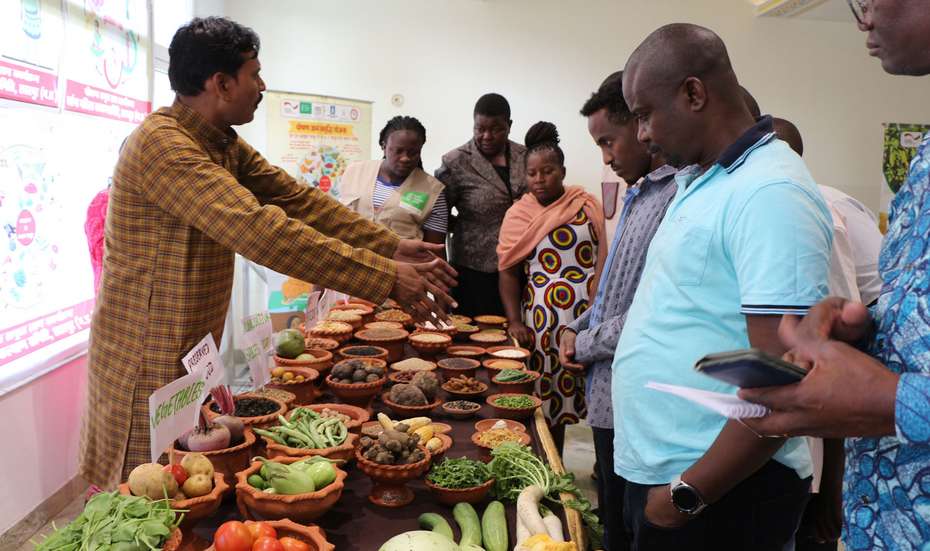
Another critical point we spoke about is the role of women, as it can often fall on them to maintain good nutrition in families. In Sierra Leone, for example, WHH works according to the concept of the "Gender Model Family." This means sensitizing women and men to gender equality and empowering them with knowledge and skills. Our colleagues from Asia also see the concept as an opportunity for their work to break down traditions and roles.
In the model village of Patan there are credit saving groups, seed banks and solar dryers
During our visit to the model village of Patan, where families are already putting their learning into practice, we discover what makes up a "Nutrition Smart CommUNITY". Residents grow crop varieties that yield throughout the year, have planted kitchen gardens, know the ten food groups and that at least five of them should be on the menu daily. Each household now has a development plan.
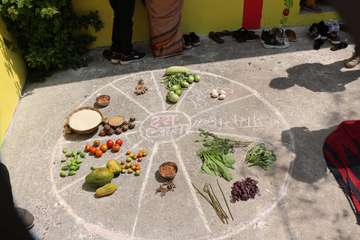
One family shows us their solar dryer for mushrooms, spices and peppers so the harvest does not spoil. Other families have set up seed banks. There is a credit savings group for women and a youth group that looks after the children, including in school matters. For one day, the Indian partner organization for the village organized a "market of opportunities." They presented fruit, vegetables and herbs, the cultivation of which the projects promote.
There are also didactic materials, including a game about nutritional knowledge. Anyone who has eaten something from at least five food groups in the past day can climb a ladder. Those who have forgotten to water their kitchen garden have to go back. The participants from African countries are particularly interested in the ceramic Matka water filters, which do not require any chemicals. Could this also be a solution for their countries?
The week we spent together was a success for all of us. Not only did we exchange technical information and bring back valuable suggestions, but we forged friendships across continents and teams. The personal encounters have strengthened the team spirit and the will to develop the joint project further – perhaps into new countries.
Simone Welte is a nutrition consultant and coordinator of the WHH program "Nutrition Smart CommUNITY". This text was first published in German in the Welthungerhilfe magazine (issue 03/2023).




